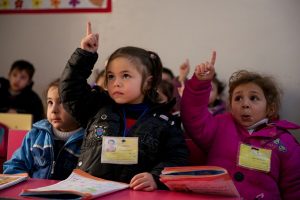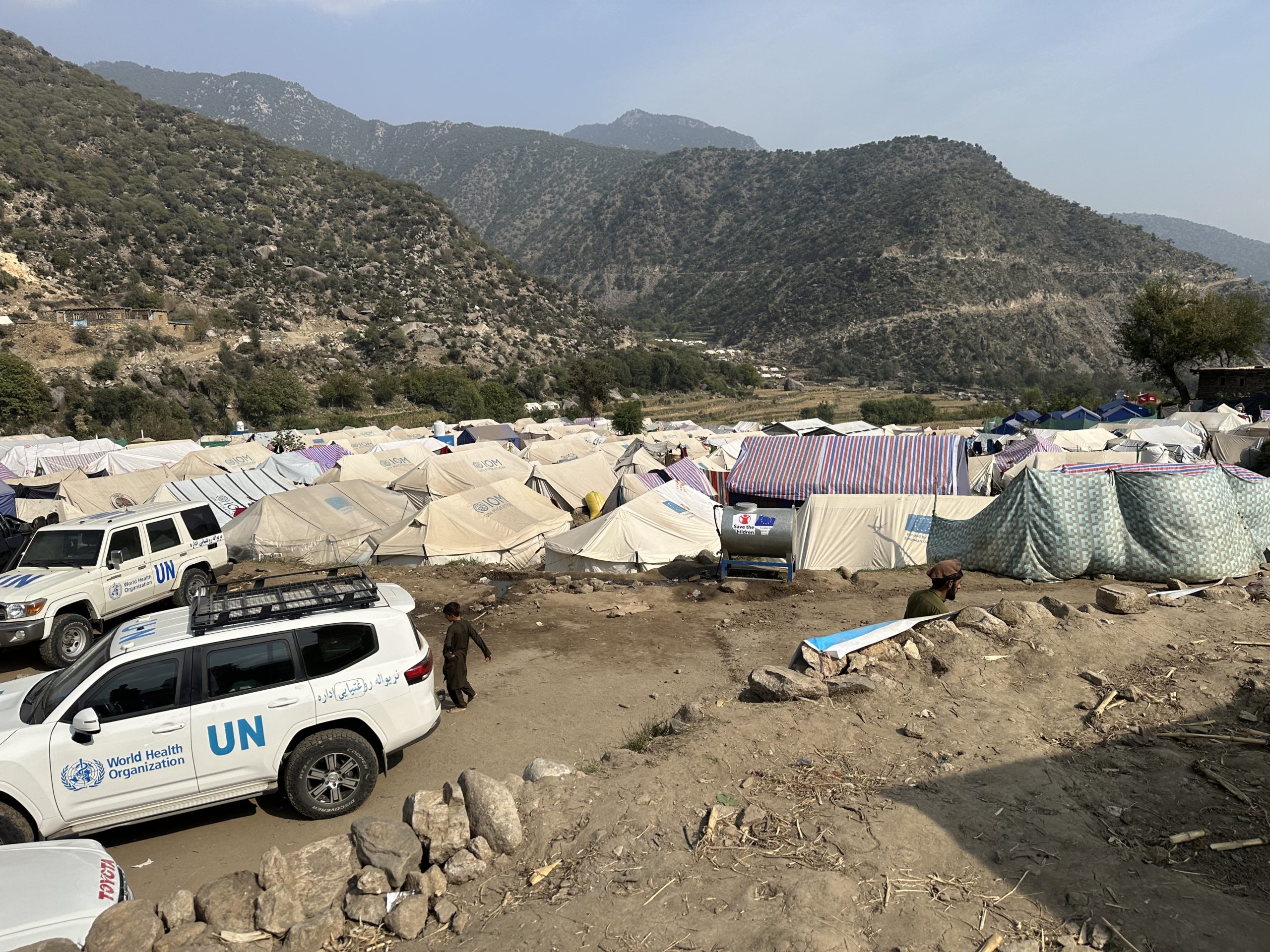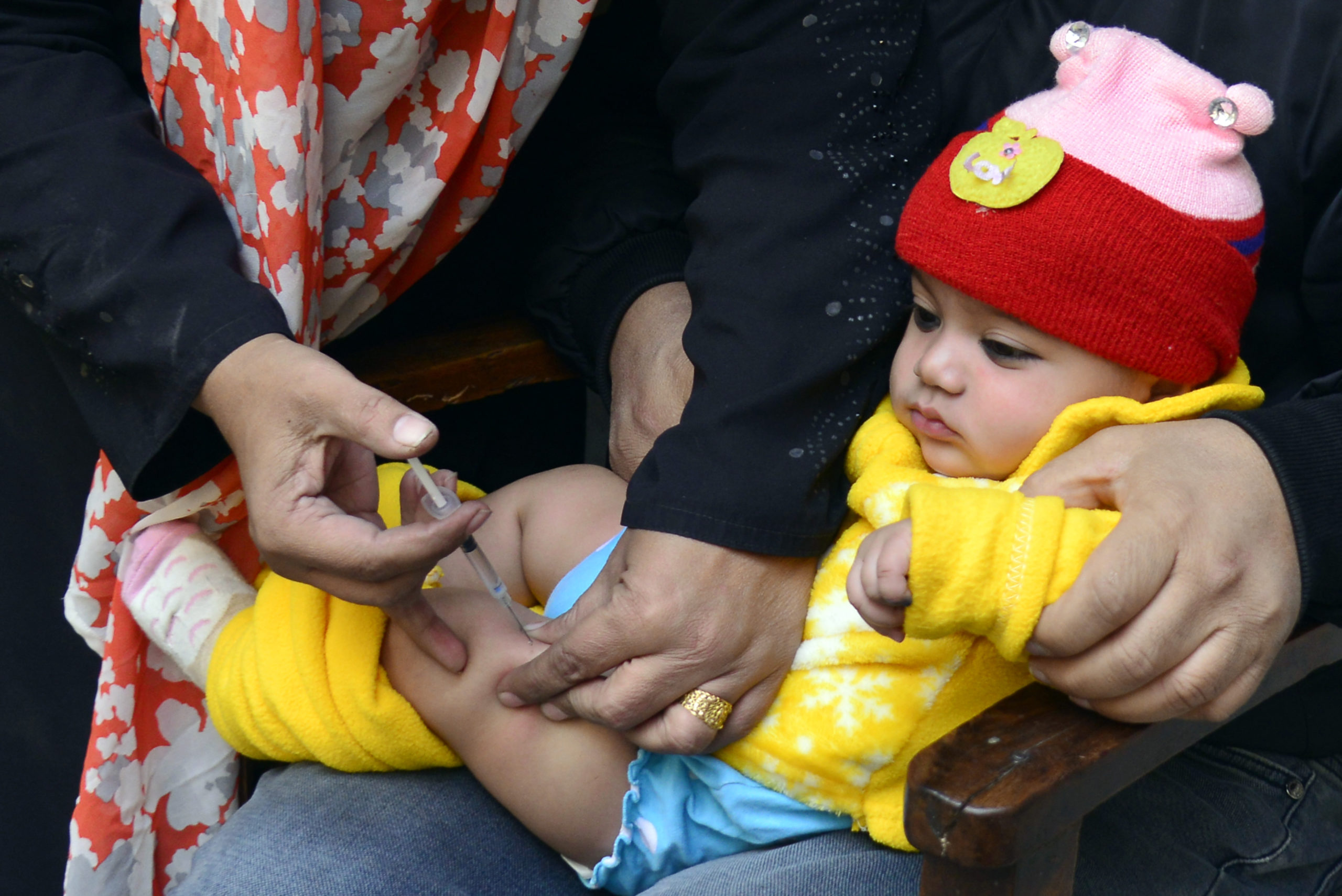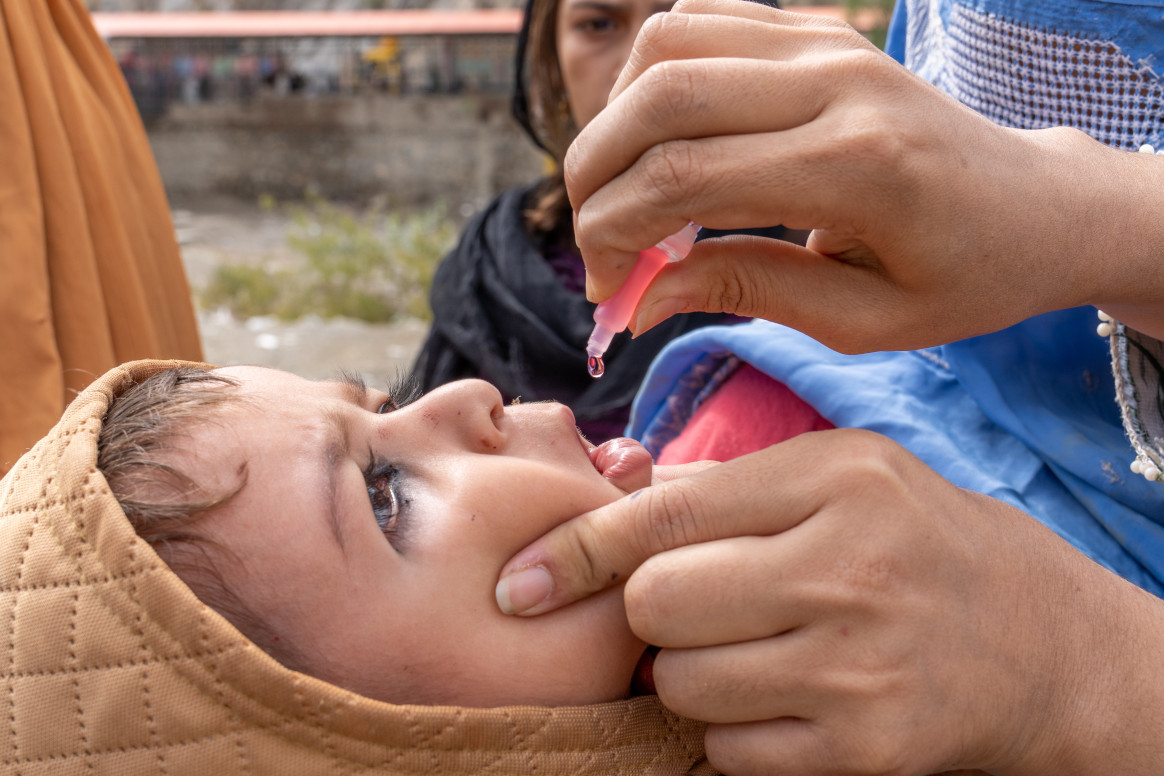The UN agencies in the Global Polio Eradication Initiative sign open letter calling on all parties to the Syrian conflict to allow aid to reach children

22 January 2014 – Against the backdrop of peace talks on Syria which opened today in Switzerland, senior United Nations humanitarian officials have joined international aid organizations calling for the protection of Syrian children, 11,000 of whom have been killed and 4 million forced to flee their homes over the past three years.
“We believe the time has come to urgently focus on the plight of children,” read the open letter signed by 15 high-ranking officials, including Anthony Lake, Executive Director of the UN Children’s Fund (UNICEF); and Margaret Chan Director-General of the World Health Organization (WHO).
The signatories call on the parties to commit to a three-point protection plan: do not prevent live-saving aid from reaching children; do not target or allow military use of schools or health facilities; and do not use explosive weapons in populated areas.
This has particular resonance in the area of polio, where the disease re-appeared in the country after a 14-year absence. WHO and its partners need full access to all the country’s children in order to stop the disease in its tracks.



